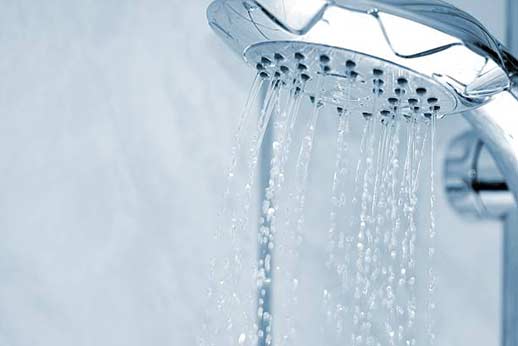Leaking showers can cause significant damage to your home, especially if they occur on an upper floor and seep into the lower levels. Not only can these leaks lead to structural issues, but they can also cause mold and mildew growth, which can pose health risks to you and your family. Taking effective steps to stop upstairs shower leaks is crucial in order to protect your home and maintain its value.
Identifying the Signs of an Upstairs Shower Leak
Before you can take action to stop a shower leak, it’s essential to identify the problem. Here are some common signs that you may have a leak in your upstairs shower:
- Water stains on the ceiling or walls directly beneath the shower
- Damp or musty smells in the affected area
- Damage to the drywall, such as bubbling or peeling paint
- Visible water dripping or pooling around the shower
- Decreased water pressure or irregular water flow
If you notice any of these signs, it’s crucial to address the issue promptly to prevent further damage.
Inspect and Repair Grout and Caulking
The most common cause of upstairs shower leaks is deteriorated or damaged grout and caulk. Over time, the grout between the tiles can crack and break apart, allowing water to seep through. Similarly, the caulking around the edges of the shower enclosure or tub can degrade, creating gaps for water to escape.
Start by inspecting the grout lines and caulking around your shower. Look for any cracks, gaps, or signs of wear. If you find any, remove the old grout or caulk and replace it with a high-quality, waterproof product. Properly sealing the joints will help prevent water from infiltrating the surrounding areas and causing leaks.
Check the Shower Pan
The shower pan is the waterproof barrier that catches and directs water to the drain. If the shower pan becomes damaged or develops cracks, water can leak through and damage the floor or ceiling below.
To check your shower pan for leaks, plug the drain and fill the base of the shower with water. Let it sit for 15-20 minutes and then inspect the area beneath the shower for any signs of leakage. If you detect a water leak, it’s essential to repair or replace the shower pan to prevent further damage.
Replace Damaged Tiles
If you have cracked or damaged tiles in your shower, they can contribute to leaks. Water can seep through the cracks and reach the underlying layers, causing water damage and mold growth.
If you notice any damaged tiles, it’s important to replace them promptly. Carefully remove the damaged tile and replace it with a new one, ensuring proper adhesion and sealing. This will help maintain the integrity of your shower and prevent future leaks.
Ensure Proper Drainage
Poor drainage can lead to water pooling in your shower and finding its way through cracks or gaps. Make sure your shower drain is clear of any debris or obstructions that may impede water flow. Regularly clean the drain to prevent buildup and ensure efficient drainage.
Install a Shower Water Leak Detector
For added peace of mind, consider installing a shower water leak detector. These devices can alert you to any leaks or moisture accumulation in real-time. They provide an extra layer of protection by quickly notifying you of any developing issues so you can address them promptly.
Seek Professional Help
If you’ve tried the above steps and are still experiencing upstairs shower leaks, it’s time to seek professional help. A qualified plumber near you or can assess the situation and identify any underlying issues that may be causing the leaks. They have the expertise and tools needed to provide effective repairs and prevent further damage to your home.
In Summary
Addressing upstairs leaks is crucial to prevent damage to your home and ensure the safety of your family. By inspecting and repairing grout and caulking, checking the shower pan, replacing damaged tiles, ensuring proper drainage, installing a shower water leak detector, and seeking professional help when needed, you can take effective steps to stop these leaks and protect your home’s integrity.


